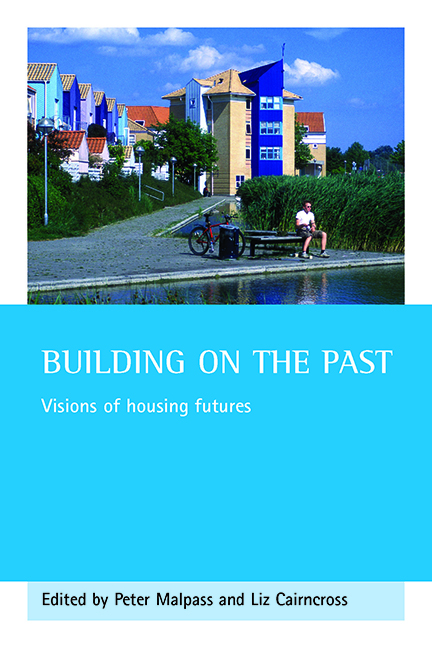Book contents
- Frontmatter
- Dedication
- Contents
- List of tables, figures and photographs
- Foreword
- Acknowledgements
- List of contributors
- one Introduction
- two Moving with the times: changing frameworks for housing research and policy
- three A new vision for UK housing?
- four Housing demand, supply and the geography of inequality
- five Understanding the drivers of housing market change in Britain’s postindustrial cities
- six Affordability comes of age
- seven Mob mentality: the threat to community sustainability from the search for safety
- eight Housing and the ageing population
- nine Tenant futures: the future of tenants in social housing
- ten Democracy and development
- eleven Conclusion
- Index
- Also available from The Policy Press
seven - Mob mentality: the threat to community sustainability from the search for safety
Published online by Cambridge University Press: 15 January 2022
- Frontmatter
- Dedication
- Contents
- List of tables, figures and photographs
- Foreword
- Acknowledgements
- List of contributors
- one Introduction
- two Moving with the times: changing frameworks for housing research and policy
- three A new vision for UK housing?
- four Housing demand, supply and the geography of inequality
- five Understanding the drivers of housing market change in Britain’s postindustrial cities
- six Affordability comes of age
- seven Mob mentality: the threat to community sustainability from the search for safety
- eight Housing and the ageing population
- nine Tenant futures: the future of tenants in social housing
- ten Democracy and development
- eleven Conclusion
- Index
- Also available from The Policy Press
Summary
Introduction
It is difficult to separate public policy interventions, even those as central as the provision of public housing, from utopianism and desires to affect both the housing and social futures of citizens (Ravetz, 2001). Government action and academic research is full of assessments of the likely future impacts of extrapolated trends, such as housing expenditure, economic growth and change, social need, household mobility and likely regional and labour market changes which will affect the type and scale of need for social and private housing. Among these anticipated changes, any attempt to prophesy the future is deeply linked to how we measure our progress to a future and better place (Kumar, 1978). Of course, this is to say nothing of the complexities and dangers of applying such visions. This chapter builds on recent empirical work and policy to consider aspects of current social and urban change that appear likely to lead to increasingly inequitable outcomes in the future.
In documenting the extreme poverty of ‘The bend’ in 19th-century New York, Jacob Riis's essays and photographs, entitled How the other half lives, threw light on the relative seclusion of poverty from the gaze of the middle classes who did not know because they did not care (Riis, 1971). Rather than referring, as has become common, to the affluent, Riis was concerned with a voiceless and growing urban poverty with few champions. While retaining a clear focus on continuing issues of poverty it is also necessary to consider the impacts of choices and patterns of mobility by higher-income groups to develop a fuller impression of the future connections between poverty, affluence and segregation in British housing. While social policy, housing and urban analysts have long cast their gaze over those less fortunate, the task of thinking about the future also hinges on recapturing and reconnecting the affluent and households with choice in order to promote the kinds of diverse communities that appear to hold out the prospect of greater sustainability and social equity. In this chapter it is argued that in future private residential choices may have increasingly pronounced public consequences, the beginning of which can already be seen in our towns and cities.
In both the residential choices and daily negotiated patterns of association and social interaction of high-income households the need for safety is playing an increasingly significant role.
- Type
- Chapter
- Information
- Building on the PastVisions of Housing Futures, pp. 163 - 184Publisher: Bristol University PressPrint publication year: 2006



